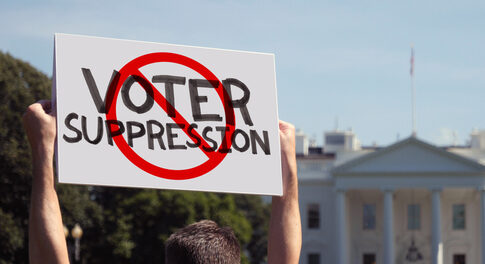North Carolina’s House Bill 1074, the Citizen Only Voting Amendment, has stirred debate over its implications for electoral integrity. Critics argue the amendment provokes confusion and anti-immigration sentiment. Voting yes or no on the amendment does not change existing voter eligibility.
Proposed Amendment’s Contentious Debate
The Citizen Only Voting Amendment proposed under House Bill 1074 aims to explicitly state that only U.S. citizens can vote in North Carolina. Should it pass, the amendment will not affect the current voting eligibility statutes, which already bar non-citizens from participating in elections. The proposal intends to formalize what’s implicitly understood, attempting to eradicate any chance for future confusion or reinterpretation that might permit non-citizen voting in state and local elections.
Critics argue the amendment may sow confusion among voters, particularly naturalized citizens, potentially discouraging them from participating in elections. Furthermore, there’s concern that the amendment might bolster anti-immigrant sentiment and stoke unnecessary fear. The U.S. Constitution, alongside North Carolina’s constitution, has always granted voting rights strictly to U.S. citizens, rendering this measure redundant.
In Wisconsin and North Carolina, voters will face constitutional amendments aimed at cracking down on noncitizen voting, despite that already being illegal and rare. https://t.co/03ojFmUsoN
— NBC News (@NBCNews) October 22, 2024
Political and Social Implications
The initiative has ignited robust discussions, with both supporters and critics voicing strong opinions. State Rep. Pricey Harrison referred to the proposal as a “political ploy” aimed at increasing Republican voter turnout while potentially suppressing newly naturalized citizens uncertain of their voting rights. Proponents, however, see it as a safeguard, ensuring only eligible citizens partake in the voting process.
Advocates mention the amendment as part of a broader initiative aimed at preventing non-citizen voting. Nonetheless, opponents argue such a measure might further inflame anti-immigrant fears without substantive evidence. They cite examples in other states where similar amendments were passed, interpreting them as echoes of discredited claims about widespread voter fraud by undocumented immigrants.
North Carolina voters will decide on amendment to explicitly bar noncitizens from voting in elections: North Carolinian voters are seeing a "Citizens Only Voting" amendment on their 2024 ballots to solidify citizen status to cast a ballot… https://t.co/tdQTr59ze5 #BreakingNews pic.twitter.com/meO9pttUR7
— ZBreakingNewz (@ZBreakingNewz) October 24, 2024
Efforts to Ensure Election Integrity
The North Carolina State Board of Elections undertook a methodical purge of outdated registrations, successfully removing over 747,000 entries, including nine identified as foreign nationals. This is a broader effort to uphold election integrity, following federal mandates for regular maintenance of voter registration rolls. These moves reinforce North Carolina’s commitment to ensuring that only eligible citizens participate in the electoral process and assuring voters of the system’s security.
As North Carolina voters prepare to cast their votes in November, the measure has garnered staunch support, especially among conservative circles aiming to cement the definition of voter eligibility. However, it faces staunch opposition from civil liberties groups that see it as an unnecessary overlapping of laws that are already explicit enough in protecting citizen voting rights.



If you don’t have everything written down perfectly the democrats will see a loophole and run right through it!
Why would anyone oppose election integrity? What motives are at play when someone doesn’t want ‘free and fair’ elections? U.S. election law already mandates that only U.S. citizens are allowed to vote in national elections. Many states have re-enforced that law by requiring only U.S. citizens are allowed to vote in state and local elections. What’s wrong with that? The Democrat Party has taken legal action against some of these states to prevent them from enforcing national and state election laws — why is that? Why don’t they want ‘free and fair’ elections?